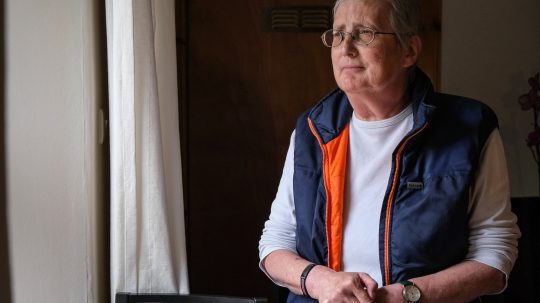A Lords Private Members’ Bill on assisted dying will be scrutinised in its second reading on October 22 2021, potentially paving the way for legalising assisted death as an option for the terminally ill in the near future.
The Assisted Dying Bill was formally introduced by Dignity in Dying’s Chair Baroness Molly Meacher in May. If passed, it would legalise assisted death for terminally ill, mentally competent adults in their final months of life.
Some are concerned that legalising assisted death could infringe on people’s right to life, protected under Article 2 of the Human Rights Act, if it is not handled with extreme care.
This Bill is an insurance policy against intolerable suffering which benefits us all
“My Private Members’ Bill on assisted dying is modest in its scope and yet its potential to transform all our lives and deaths for the better is colossal,” said Meacher. “It strongly supports access to the best possible end-of-life care alongside this option, which would enable terminally ill, mentally competent people whose suffering is beyond palliation to die on their own terms, should they wish.”

Credit: Online Marketing / Unsplash
Approximately 84% of the British public would support the change. In practice, the law would require two independent doctors and a High Court judge to be satisfied that any individual making a request for assisted dying is over 18, terminally ill with six months or less to live and fully mentally competent. These officials would also be responsible for ensuring the individual is making the decision of their own volition, without any interference.
Meacher continued: “It would also provide invaluable peace of mind and control to countless more who may never avail themselves of this option but would be comforted by the simple fact of its existence. This Bill is an insurance policy against intolerable suffering which benefits us all.”
Momentum for change is building and there has never been a better time for reform
If the appropriate conditions are met, patients would be given a prescription for life-ending medication, allowing them to take it at a time and place of their choosing. In England, Wales and Northern Ireland, assisted death is illegal under the Suicide Act 1961 and is punishable by up to 14 years imprisonment. Trying to end your own life is not a criminal act. There is no specific law against assisting suicide in Scotland but any person helping another to die could lead to prosecution for culpable homicide.
“The Westminster Parliament will now look again at legalising assisted dying, and rightly so; the current law thwarts open discussion between dying people, their doctors, friends and family, forcing people to suffer unbearably against their wishes or contemplate sedation, starvation, suicide or Switzerland,” said Sarah Wootton, Chief Executive of Dignity in Dying. “Peers have been in the majority supportive of law change and MPs are increasingly following suit, recognising that the blanket ban on assisted dying simply does not work.”
Modelled on legislation that has existed in Oregon, USA for over 23 years, the Bill hopes to give terminally ill people more choice and comfort when deciding how their life comes to an end. Four Australian states, New Zealand and nine other American states have similar legislation allowing for assisted death in cases of terminally ill patients.

Credit: Sharon McCutcheon / Unsplash
Earlier this year, the then Health Secretary announced to the All Party Parliamentary Group for Choice at the End of Life that he had requested data from the Office for National Statistics on suicides by terminally ill people, as well as assisted deaths of British nationals in Switzerland.
“Safeguarded laws which enable choice alongside high quality palliative care are in place in an ever-growing number of states and nations around the world,” said Dignity in Dying’s Wootton. “Momentum for change is building and there has never been a better time for reform – for our parliament to pass pragmatic, safe and compassionate assisted dying laws for the people who really need them.”
The largest ever survey of doctors on the issue last year found a majority disagreed with the British Medical Association’s (BMA) current stance on assisted suicide; its official policy is of oppositon to a change in the law. The BMA is preparing to debate dropping its opposition in favour of neutrality at its Annual Representative Meeting on September 14 2021. The same survey found that half of the nearly 29,000 respondents were in favour of a law change that would allow assisted dying to be a choice for terminally ill patients.
The Royal College of Nursing has had a neutral stance on the issue since 2009. In 2019, the Royal College of Physicians adopted a neutral position on the topic after a membership survey found that only 43.4% supported maintaining opposition to a law change.






